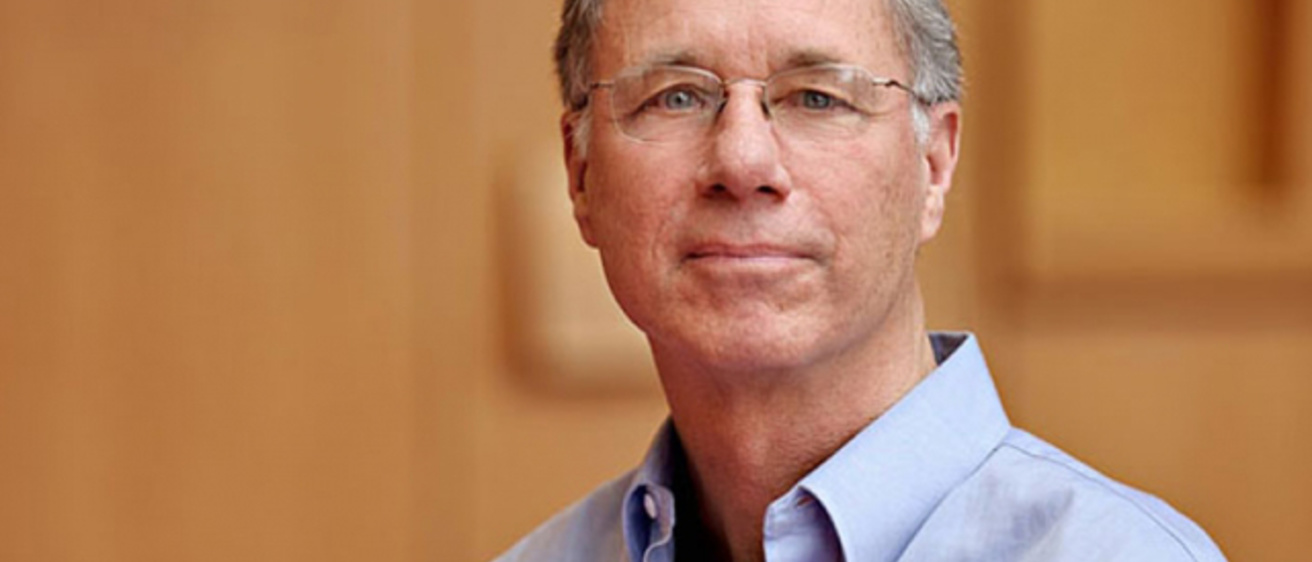The purpose of art is to lay bare the questions that have been hidden by the answers. —James Baldwin
Alan MacVey, director of the University of Iowa Division of Performing Arts and chair of the UI Department of Theatre Arts, dropped this quote during a recent conversation about his upcoming University of Iowa Presidential Lecture, titled “What Made It So Exciting.”
“It’s hard to assess what art does when it asks questions, because its questions do not have answers,” MacVey says. “They lead to other questions, and that’s what makes them exciting.
“Equally important, art has a way of stirring the imagination. A painting, a play, a piece of literature, these things create surprising connections and make one consider what he thinks or what he believes. Lots of people have written about art’s economic importance, and how it creates communities. I’m interested in discussing the human experience.”
MacVey will deliver the lecture at 3:30 p.m. Sunday, Feb. 23, in the Fourth Floor Assembly Hall of the Levitt Center for University Advancement. His words alone will not carry the event: In a unique twist on the lecture format, at certain points actors will perform scenes.
“The intellectual substance of what I have to say won’t surprise anybody. If I asked someone, ‘What’s the function of art?’ the answer likely would be quite similar to my own,” MacVey says. “I want to make these ideas more memorable and vivid through these scenes. By communicating these known ideas in a way that creates memories, it emphasizes that art is really an important part of who we are as human beings.”
When did the excitement begin for you?
I didn’t grow up in an artistic family at all. I wasn’t a drama person at all—I played baseball, that’s what I did. I didn’t go to plays or concerts or dance recitals; I didn’t attend the opera until I went to college. But my parents did take me to musicals. At 14, we went to Flower Drum Song by Rodgers and Hammerstein. I had never seen anything like it—it had such wonderful music, and the story was good. In that specific moment, I thought, “Wow, this is great!”
Still, I went to Stanford with the intention of playing baseball. Once there, I saw a sign for an audition for a new musical. The desire to sing led me to try out, thinking perhaps I’d get a part in the chorus. I ended up with a lead part, and my path went from there. So I suppose I was late coming to the arts; I’m still learning to this day.
How does the excitement carry over in the academic setting?
This semester, I’m teaching my favorite course, a graduate acting class with 17 students, a mix of actors and directors. The topic is Shakespeare. I know from experience that the students walk in a bit scared; Shakespeare is not easy. So on the first day, we took a single scene of about 60 lines from the opening of Henry IV. When we finished, I asked, “What happened in that scene?” The response was…confused. We spent the rest of that day simply trying to figure out exactly what the characters were saying—that was all, and it was plenty.
On the second day, I had them imagine themselves as the king, waking and going out in the field to fight—all the stuff that’s in that speech is happening to them. They physicalize it, vocally and through movement. All these images—meteors in the heavens, knives slicing your thigh—they all become physical, they experience them. Then I had a student go back and read the opening scene. You could feel everyone in the room having the same reaction: “This is fabulous!” They didn’t simply figure out how to do the scene; they saw that when they do it, it is so good. And that feeds me, to watch the light bulbs go on.
Describe your experience working at the University of Iowa, where the arts are a central pillar of the institution.
It’s great that we don’t have to make a case for the arts here. How many places have the arts atop the strategic plan? Not many. I’m involved with institutions around the country, and they do have to fight the good fight for the arts.
This job has been interesting from day one. In my role as head of the Division of Performing Arts, I’ve learned more about dance and music, and connecting on a university level with the School of Art and Art History, the writing programs, the museums, Hancher, and cinema has been very rewarding. I’ve found myself thinking, “Why would I want to do anything besides this?” I’ve been involved in professional theater for most of my professional life and have loved it, but working with colleagues across disciplines—not just the arts but the humanities, the social sciences, and the sciences—well, the university is the greatest invention humans have ever made. It’s a privilege to be a part of it.
As Bob Dylan said, “He not busy being born is busy dying.” We are constantly being born here. I’ve felt that all along. That’s why I’m glad I came here.
Individuals with disabilities are encouraged to attend all UI-sponsored events. If you are a person with a disability who requires a reasonable accommodation in order to attend the Feb. 23 UI Presidential Lecture, contact the UI Office of the President in advance at president@uiowa.edu or 319-335-3549.
